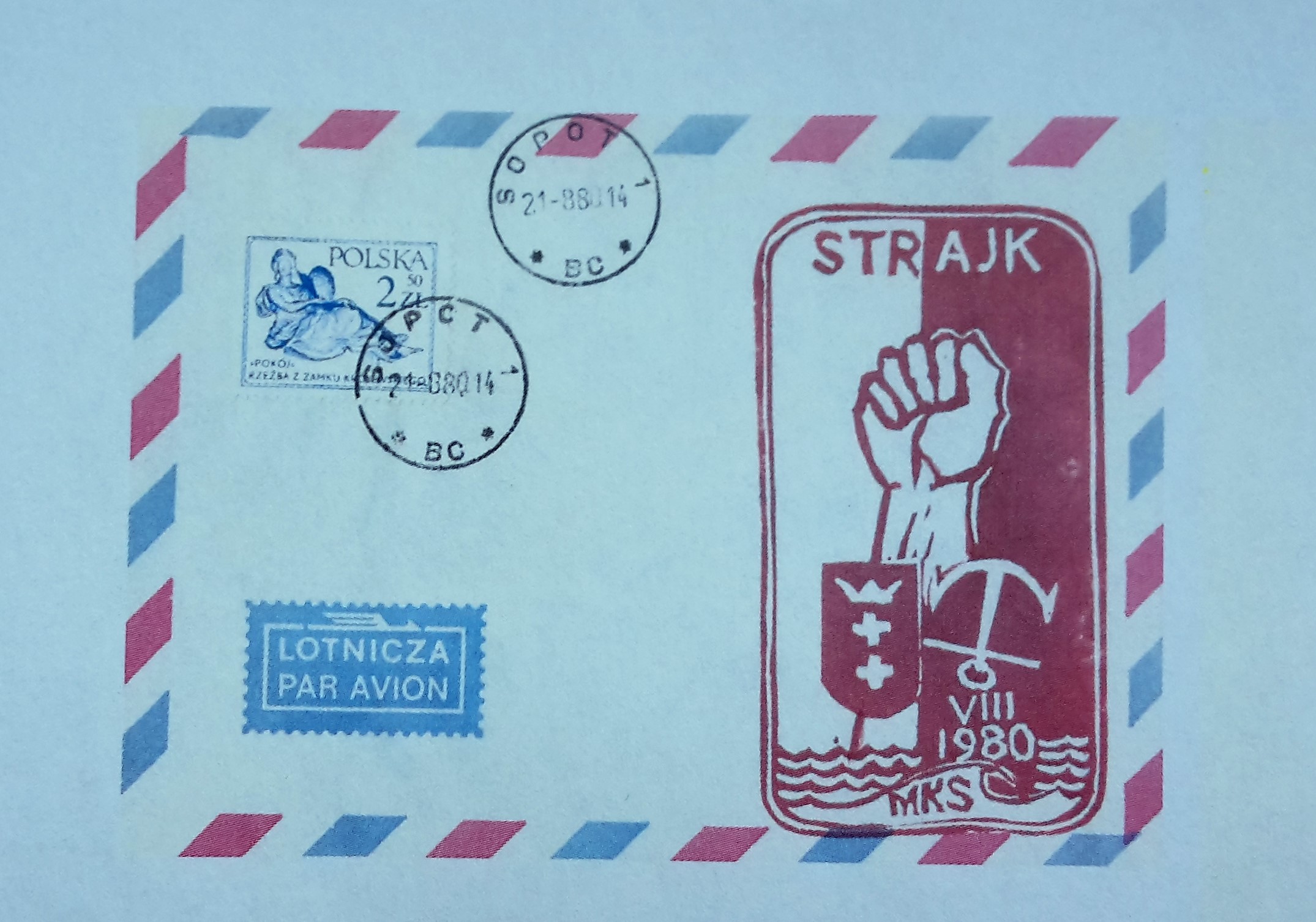Collection gathered by Michał Guć is an extensive set of postage stamps, which were disseminated through the underground communication net of people engaged in dissent activities. First postage system of this kind was created during the strikes in Poland in 1970, but it was broadly developed after 1980 in relation to the “Solidarity” movement’s registration. Stamps are one of the most interesting visual representations of the “Solidarity” heritage and the ideals which the movement shared.
Stamps were rarely used for the direct communication of the opposition. Usually they were bought by the “Solidarity’s” sympathizers, what helped the movement to gather some money for its activity or to offer help to the families of the persecuted. By buying the stamps (or its copies pressed on the paper with the matrices), people showed support for the changes that the movement aimed to install. The stamps strongly vary in terms of their form (size, techniques, colours) and content. Some of them were created by amateur political activists and some by professional artists. Since it was an illegal action, underground postage activists had little printing possibilities and difficulties with organising paper and ink. Thus, stamps were usually curved eg. in wood, and using such matrices they were pressed onto the envelopes and other paper. Their content refers to the political, historical and religious issues – both current and those which the regime tried to erase from social memory.
Michał Guć’s collection is an effect of his personal engagement in the democratic movement in the early 1980s. After the introduction of a martial law, as a teenager as young as 15 years old, he joined the dissemination net of the samizdat publications. For his own archival purposes he started to gather one copy of every material he had encountered. Such conscious documentation activity came from his beliefs that some big changes were about to happen and the underground publications were the testimonies of the revolution.
At the beginning his collection included some illegal books, newspapers and tissue-paper copies, but in the late 1982 the underground postage stamps started to emerge. At first he started to archive them on the same basis he gathered the other underground materials. However, soon this peculiar philately became a hobby of his. Thanks to his personal connections he was able to acquire more and more items, some of them quite unique. Due to the fact that a close member of his family was kept in the internment camp in Strzebielinek, Guć gained access to the camp postage stamps, which became a big part of his collection. Since in socialist Poland philately was a popular hobby (functioning in a semi-public circuit), the collector was able to contact other enthusiasts who were eager to exchange their stamps.
In 1989 Michał Guć had already have an extensive collection of the underground postage stamps. With the systemic transformation and the introduction of a free market in Poland the philately underwent drastic changes. In socialist times the stamps were available only through personal connections, but since the beginning of the 1990s the philatelist hobby started to be hugely dependable on money resources. Even bigger changes were introduced by the internet auctions. However, Michał Guć never disposed his stamps. In the early 1990s he put his hobby aside to engage in a professional career. After over a decade he got back to philately, after his friends’ encouragement and lured by the internet possibilities to enrich his collection.
Currently he owns one of the fullest underground postage stamps’ collections in Poland. Stamps are his passion, offering an escape from work and duties. However, as an ex-dissent, he has a sense of mission to preserve the heritage of the democratic movement. He constantly searches for new, unique stamps and explores the personal histories which are inscribed in them. Due to his emotional relation to his collection, he is not eager to share it on the exhibitions, however, the stamps are sometimes used in various publications.

